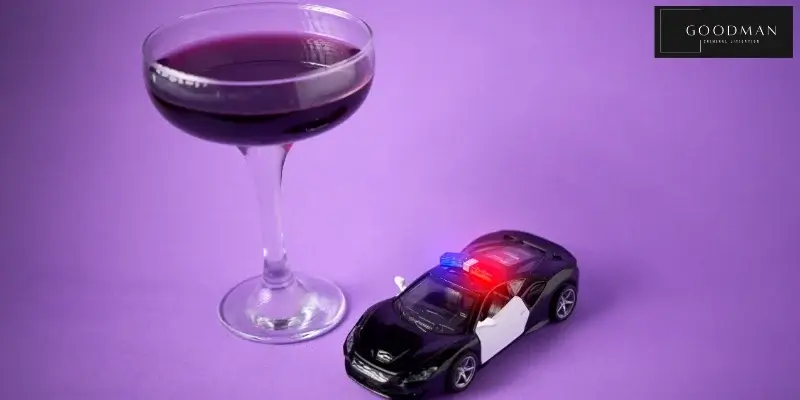Checkpoints are legal in the state of California, but they must be conducted in a specific and lawful way. Because of the Fourth Amendment, individuals are protected from unreasonable search and seizure. Many would argue that sobriety checkpoints should be considered unlawful under this amendment, however police officers adhere to strict guidelines as a means of not over-stepping these bounds.
Orange County DUI Checkpoints Lawyer

DUI Checkpoints Attorney In Orange County, CA
The rules and regulations under which DUI checkpoints must be operated in the state of California were established by the California Supreme Court several years ago. They are still constitutionally recognized to this day.
These regulations pertain to aspects of the checkpoint process including:
- Investigating the level of intrusiveness that was involved during the sobriety stop
- Establishing how and when the checkpoint was operated
- Determining who is responsible for the decision making during the operation of a sobriety checkpoint in Fullerton or any of Orange County’s surrounding areas
Receive your initial DUI evaluation online or by calling 714-879-5770
Renowned Success Rate
Criminal cases are often complicated. There are two sides to every story, and it is important that the court sees the situation clearly. We can help defend you in your criminal case and make sure your perspective is heard.

Thank you, Jacqueline Goodman!! I appreciate everything your law office has done to support in this case. Grateful for finally able to see a date, he will be able to return home.
- Anonymous
If you value your life, reputation and your future you must hire Atty Jacqueline Goodman. Just when i thought i had no options but to go to jail and get a conviction, Atty Goodman showed me otherwise and gave me a second chance and got me diversion with no conviction; she gave me my life back. She will fight for…
- Jmario S.
It is with tremendous thanks and a grateful heart that we let you know how much we appreciated your expertise, advice and phone calls on [client's name] behalf. You are a person of service and dedication.
- Former client’s parents
I don't know where to start. Honestly, I don't think I could possibly write anything that would come close to describing Mrs. Goodman's Skill as a Lawyer , she truly is remarkable at what she does. Do yourself a favor, if your in a bind, and are looking for a well respected lawyer that can produce results.... Call Jacqueline! I…
- Sharif A.
Ms Goodman and her staff were beyond helpful. I was in an extremely difficult situation that I hadn’t been in before and needed help. I was referred to Jackie and her office who were extremely helpful. Jackie and her team were extremely empathetic and knowledgeable. They were quick to respond, took action, and kept me informed. Thank you Ms Goodman…
- Nick K.
Ms.Goodman has been an amazing and thorough lawyer representing my family. She has shown up to each court date, being prepared and ready to speak to the judge. She has been a great communicator with my family and kept us informed along the way. She is authentic, and will go the long mile on your case. Choose her to represent…
- Elizabeth E.
I needed an appointment with Ms. Jacqueline Goodman and it was urgent. The best part was that she called me back immediately and I did not have to drive an hour to see her. The first meeting is free and she spoke with me for a lengthy time and she made me feel like for the first time in seeking…
- Mary P.
Ms Goodman was excellent an very professional. She took the time to understand our concerns an worries. I had 2 really bad cases facing 10+ years for trafficking, sales, an distribution between the both ... she was able to get me the best deal an walked away with probation an a new look at life. I will always recommend her…
- Joe G.
Ms. Goodman and her team is by far the best in Southern California. I literally had zero hope of getting anything but prison time on my current case and Ms. Goodman somehow got me an interview for probation. I can say it hasn’t been easy and she’s been doing a lot out of love more than any other attorney would…
- Former Client
The court was offering 9 years for 459pc. After retaining her I got the deal I wanted and even better I was free after serving just 2 years. She's an amazing attorney that you can count on.
- Aliya J.
I can't even begin to express how amazing Jacqueline was when I worked with her for a close friend's case. She was always a quick text away, and when we worried she was the vote of confidence we needed to keep going. Her office staff was also SO easy to work with. Her closing statement moved me, the family, and…
- Caleigha C.
Best lawyer! Jacqueline Goodman is an amazing lawyer, she knows her law well. She helped my brother out of a messy situation and she was always easy to contact and gave me all the information that came her way.
- Rosie C.
Jacqueline, was very professional, and knowledgeable. She listened closely, as we discussed my case. I could tell She truly cared about me. I was very pleased the outcome, and would strongly recommend Her. Honest, hard working, and compassion, would describe, Jacquie.
- Dorian C.
Ms. Jacqueline Goodman was a beacon of hope to my daughter at a time when options and hope seemed limited. Her hard work and dedication was an outcome of Excellence. Ms. Goodman’s attention to detail and knowledge of laws are truly unsurpassed. Thank you.
- Ralph S.
Jacqueline is the best! If any of my friends or family found themselves in a situation where they needed a Criminal Defense attorney I would highly recommend her. She and her staff are extremely professional and they know their stuff. I can't say enough good things!
- Travis H.
She was carring and attentive, always up front with information. She truly cares about her clients and works diligently to achieve the best possible outcome. My family and I truly admire and respect this amazing and talented lawyer. She is definitely someone you can count on for the best advice and outcome.
- Chip E.
Great attorney to work with. She's a boss and has some serious attorney swagger. When I walked into the court room with her, everybody stopped and starred. I felt like I was getting represented by a superstar attorney. She'll run circles around any DA.
- Marcus W.
DUI CHECKPOINTS FAQ'S
Orange County, CA

HOW TO DEFEND YOUR DUI CASE
Knowing about the rules and regulations of California’s DUI checkpoints is the most crucial component to building a case in your defense. As such, you should waste no time in aligning yourself with an experienced criminal defense attorney who can act aggressively on your behalf.
Under the guidance of an Orange County criminal lawyer at our office, your case will be in the hands of a qualified legal professional whose entire career is focused on defending the accused in Fullerton and nearby areas throughout Southern California. With years of experience working in the field of DUI defense, we know how to effectively tackle charges of this nature, thus allowing our clients to benefit from case dismissals and reduced charges from which they would not otherwise benefit.
Align yourself with an Orange County DUI Checkpoints attorney at the Law Offices of Jacqueline Goodman – call 714-879-5770 today!

